Kosovo Pride takes place despite calls to ban it
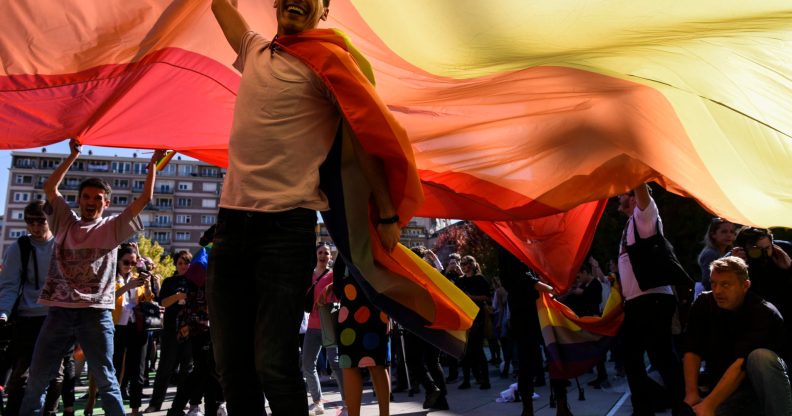
Kosovo citizens dance under a giant rainbow flag during the Gay Pride parade in Pristina on October 10, 2018(ARMEND NIMANI/AFP/Getty Images)
Kosovo Pride went ahead on Wednesday, despite calls for the event to be banned.
The first ever Pride parade in Kosovo took place in 2017.
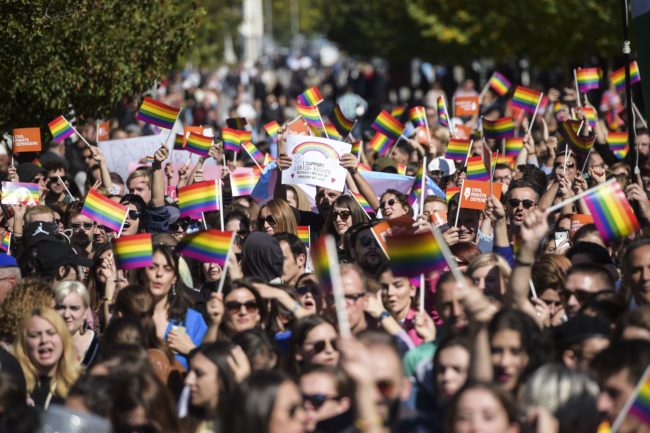
Kosovo citizens march with rainbow flags during the Pride parade in Pristina on October 10, 2018. (ARMEND NIMANI/AFP/Getty)
The second march took place in the Kosovan capital, Pristina, on October 10, under the slogan ‘In the name of freedom.’
Reuters reports there was a heavy police and security presence guarding the march, which had stirred anger in socially-conservative, predominantly-Muslim Kosovo.
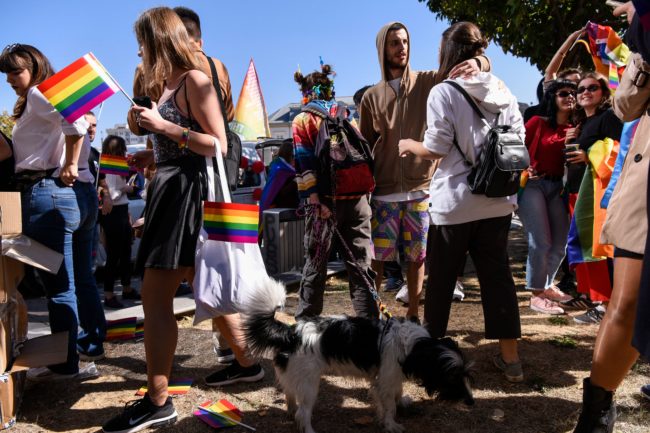
Kosovo citizens march with rainbow flags during the Pride parade in Pristina on October 10, 2018. (ARMEND NIMANI/AFP/Getty)
Fringe political party The Word (Fjala) had attempted to ban the march, Reuters reports, but was ultimately unsuccessful at preventing it from taking place.
The march went ahead without incident.
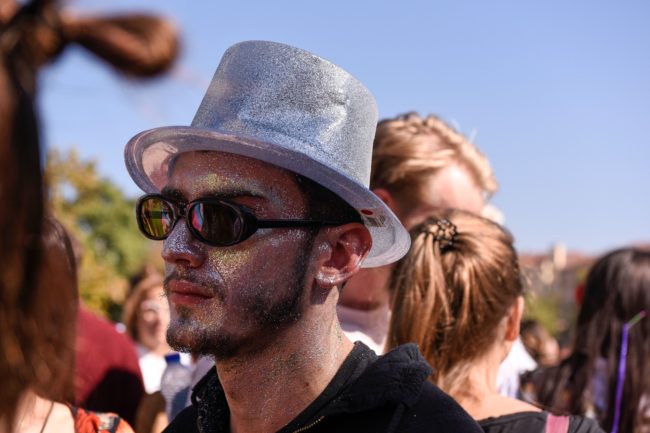
A man takes part in the Pride parade in Pristina on October 10, 2018. (ARMEND NIMANI/AFP/Getty)
Radio Free Europe reports that the parade was joined by Kosovar Minister of European Integration Dhurata Hoxha, Pristina Mayor Shpend Ahmeti, and the head of the European Union office in Kosovo, Natalia Apostolova.
Kosovo Prime Minister Ramush Haradinaj posted his support on Facebook, writing: “Sexual orientation is up to the individual and should be respected.”
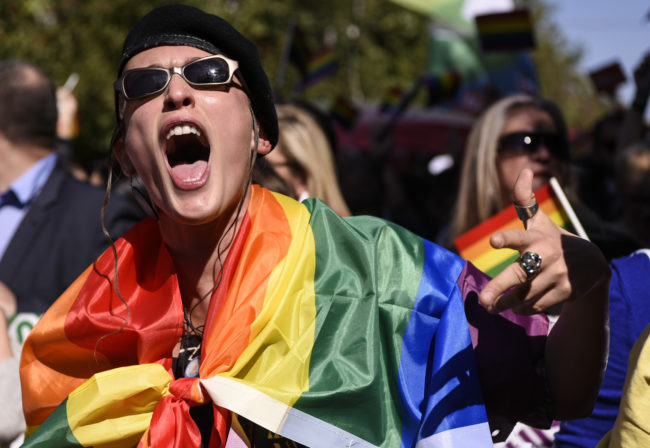
A woman wrapped in a rainbow flag takes part in the Pride parade in Pristina on October 10, 2018.(ARMEND NIMANI/AFP/Getty)
He added: “Our constitution guarantees individual freedoms for everyone.
“LGBT and Pride Week will always have institutional support, to be free and secure to express their orientation.”
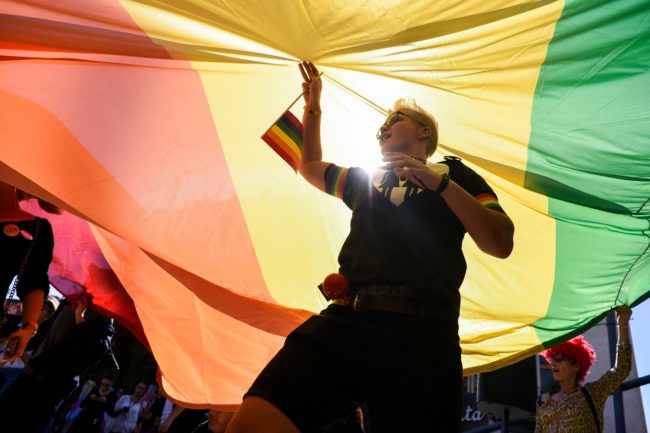
Kosovo citizens dance under a giant rainbow flag during the Pride parade in Pristina on October 10, 2018(ARMEND NIMANI/AFP/Getty Images)
Kosovo passed an anti-discrimination law protecting LGBT+ people in 2004, but gay couples still lack a number of basic rights.
Home to around two million people, the Republic of Kosovo is a partially-recognised state, which declared independence from Serbia in 2008.
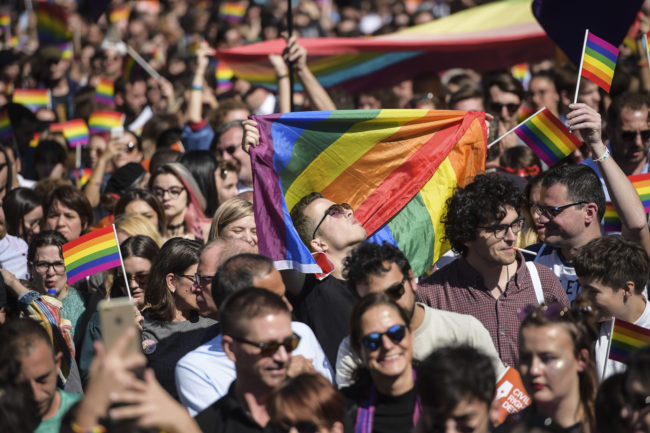
Kosovo citizens march with rainbow flags during the Pride parade in Pristina on October 10, 2018. (ARMEND NIMANI/AFP/Getty)
Serbia and several of its allies do not recognise Kosovo as a country, though it is recognised by 113 UN members.
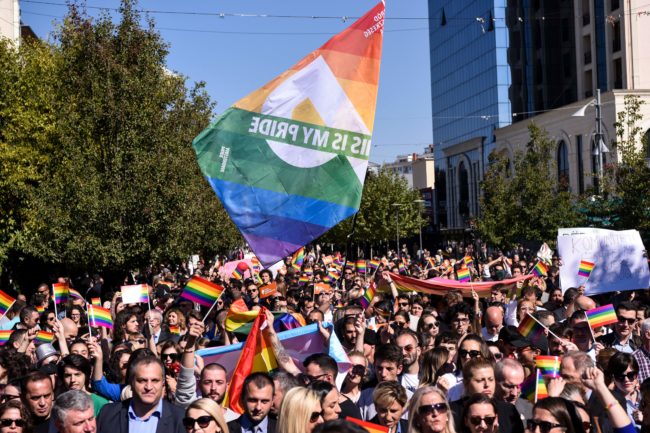
Kosovo citizens march with rainbow flags during the Pride parade in Pristina on October 10, 2018. (ARMEND NIMANI/AFP/Getty)
The United Nations Security Council has not recognised Kosovo due to opposition from China and Russia.
Although LGBT+ rights have some political support in Kosovo, the legal status is uncertain.
Kosovo’s constitution has two separate clauses relating to marriage which contradict each other.
Article 37, which is written into the constitution, states that “everyone enjoys the right to marry.”
However, Article 14 states that “marriage is a legally registered community of two persons of different sexes.”
LGBT activists have called for Article 14 scrapped so that the European country can finally achieve marriage equality.
The push for LGBT+ rights comes as Kosovo seeks closer ties to the European Union.

